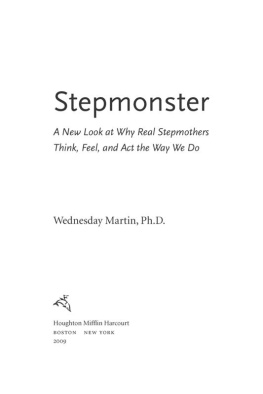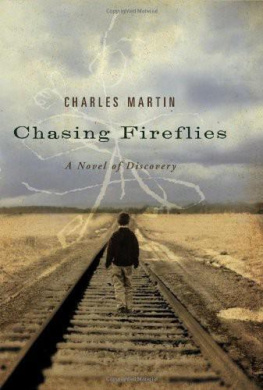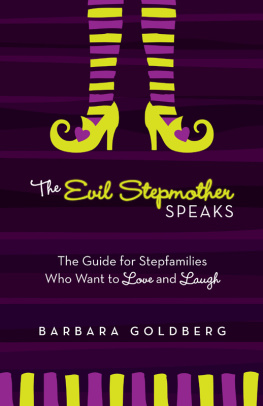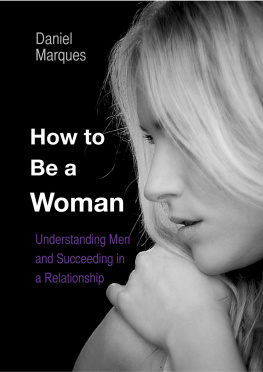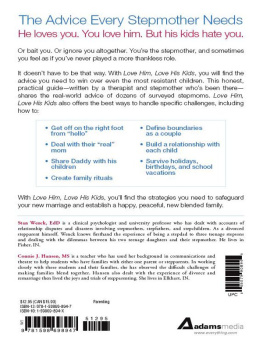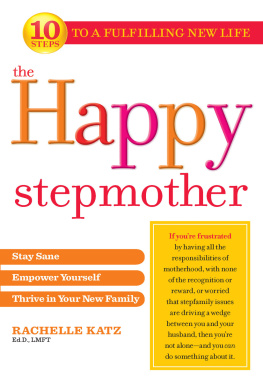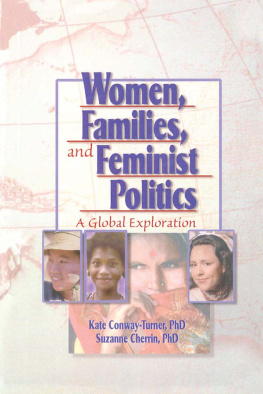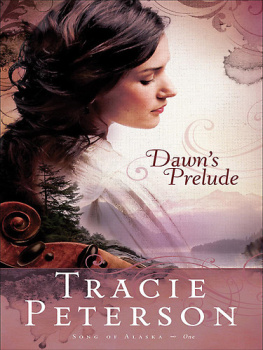Houghton Mifflin Harcourt
BOSTON NEW YORK
2009
Copyright 2009 by Wednesday Martin
ALL RIGHTS RESERVED
For information about permission to reproduce selections from this book,
write to Permissions, Houghton Mifflin Harcourt Publishing Company,
215 Park Avenue South, New York, New York 10003.
www.hmhbooks.com
Library of Congress Cataloging-in-Publication Data
Martin, Wednesday.
Stepmonster : a new look at why real stepmothers think, feel, and act the way
we do / Wednesday Martin.
p. cm.
Includes bibliographical references and index.
ISBN 978-0-618-75819-7
1. Stepmothers. 2. Parent and child. I. Title.
HQ 759.92. M 377 2009
306.874'7dc22 2008053513
Book design by Brian Moore
Printed in the United States of America
DOC 10 9 8 7 6 5 4 3 2 1
The author is grateful for permission to quote from "On Having a Stepmother Who
Loves Opera" by Andrew Solomon, originally published in My Father Married Your Mother, edited by Anne Burt. Copyright 2006 by Andrew Solomon, reprinted with permission of The Wylie Agency LLC.
Contents
Introduction
P ART I T HE S TEPMOTHERING S CRIPT
1. A Wall of One's Own: Becoming a Stepmother
2. "She's Such a Witch!" Fairy Tale History and the Stepmothering Script
P ART II R EMARRIAGE R EALITIES
3. "You're Not My Mother!": And Five Other Universal Step-Dilemmas
4. "You're Not My Child!": Anger, Jealousy, and Resentment
5. Him: Understanding Your Husband
6. Your Marriage
P ART III P ERSPECTIVES
7. Sociobiology: What the Birds, the Bees, and the White-Fronted Bee-Eaters Can Teach Us About Stepmothering
8. Stepmothers Worldwide: Anthropology, Attachment, Context
P ART IV R ISKS AND R EWARDS
9. Stepmother Sadness and Depression: Understanding the Risk Factors
10. Women with Adult Stepchildren: Lessons from "Lifers"
Acknowledgments
Notes
Bibliography
Index
Introduction
My marriage was meant to be. It was also doomed to fail. You see, I chose a man with children. Experts estimate that more than half of all adult women in the United States will do the same in their lifetimes and that up to 70 percent of those partnerships will fail. Factor in all the odds and on the day I said "I do," I might as well have picked out a divorce lawyer as well. The greatest predictor of divorce is the presence of children from a previous marriage. In fact, divorce rates are 50 percent higher in remarriages with children than in those without. Even more alarming for my marriage, according to the statistics that I was blessedly unaware of until after I committed myself for life, was the fact that my husband had not one but two teenage daughters and was living with one of them when we got engaged. (Unbeknownst to me, some experts recommend delaying marriage to a partner whose child is between the ages of ten and sixteen, so great are the risks of conflict for the couple and the household during that particular period of a child's development.) The final high-risk factor: I was a childless woman marrying a man with children. (Some research suggests that women with their own children fare better in a marriage to a man with children, although they face a whole different set of emotional and practical challenges.) The chances of our union surviving were arguably in the realm of the hypothetical.
And I had no idea. Not because everything was finefrom the very first moment, things hadn't been fine, exactlybut because I had my head placed firmly in the sand. I wanted this thing to work. I wanted a wedding and a happy ending, and I was going to ignore everything and anything I had to in order to make it happen. When a coworker, a stepson himself, advised that I should run from my boyfriend as fast as I could owing to a less-than-ideal co-parenting situation with his ex-wife, I attributed it to sour grapes. When a friend saw a picture of my stepdaughter-to-be (looking every inch the rebellious preteen she was) and commented, "Uh-oh," I pretended not to hear. And whenever I came across books or articles about stepmothering, I rolled my eyes, if I noticed them at all. They were full of gloom and bland advicefrom where I stood in those early, "everything's great" daysand stuff about other people. None of that was going to happen to me. I was nice; I was fun; I was young(ish). Step-hell was for stepmonsters, and I wasn't going there. Until I was.
We were going to find a wedding dress.
It was our first weekend alone together in two months. My fianc and Iwho had decided to elope and had told everyone, including his kidswere about to set off in search of something modern and fashion-forward (no princessy flounces and lace for me). And then his daughter, who was not scheduled to be with us that weekend, said she'd like to be, after all. My fianc told her she could without asking me about it. I said the wrong and wicked thing. I admitted, insisted in fact, that I wanted a quiet weekend without his girls. I wanted us to pick out my wedding dress alone, together. My fianc went silent, obviously unhappy. I went silent, feeling misunderstood, guilty, and then resentful. Was I being unreasonable? I didn't know anymore. When it came to marrying a man with children, I was discovering I couldn't find my footing or trust my judgment much of the time.
It wasn't that I didn't like them, I insisted defensively to my future husband on that day and many others. I did. I looked forward especially to spending time with my older stepdaughter-to-be, the one who didn't live with us, because I wanted to have the opportunity to get to know her in the way I was getting to know her little sister. But in those early days, I found the girls equal parts "adorable and fun to be around" and "exhausting and demanding." Sometimes, even though I didn't want to admit it, I even found them "bratty and difficult." Let me add that this was not their fault, not by a long shot. Getting used to me couldn't have been easy for them. And to make matters worse, I was coming to understand that for the entire six years of my fianc's separation, divorce, and subsequent single life, he had made sure that weekends were a whirlwind of activities planned with the girls' wants in mind. They were pretty much in charge of all the decisionswhere to have lunch, which DVDs to rent, how many glitter pens and henna tattoos and pairs of shoes to buy, when to go to bed. In my future husband's words, "They've come to expect that they can show up whenever they feel like it and that my life is all about them whenever they do."
It was only natural that, during the deepening of my relationship with him and my acquaintanceship with his girls, he and I would not always see eye to eye regarding the fact that I needed a little more time away from them than he did. But it felt like a failure to argue so muchDoes the TV have to be that loud? Shouldn't she do her homework? Can't they put their own dishes in the dishwasher? Where was his sense of privacy and of romance, anyway?and I could sense it pulling us apart. We were in the outer circle of step-hell, though I didn't realize it yet.
I wrote this book about women with stepchildren, for women with stepchildren, because being a woman with stepchildren is not easy. E. Mavis Hetherington, Ph.D., psychologist and author of the landmark, three-decade Virginia Longitudinal Study of 1,400 families that divorced and remarried, notes that whereas children frequently come to appreciate having a stepfatherparticularly if he brings in income, provides companionship to Mom, and proves to be a friend to the child"the situation with stepmothers is more difficult and stepchild resentment is more intense." And this state of affairs is more or less unavoidable. As Hetherington writes, "Even those [women] who would like to be less involved [in running the family] rarely have the chance. They are often expected to be nurturers to already difficult and suspicious children [and] to impose some kind of order on the household, which is angrily and bitterly resented by many stepchildren." Hetherington found "a real demonizing of the stepmother" in situations where the husband did not support his wife's efforts to parent and discipline, and where the husband's ex treated her as a rival and was highly involved in the children's lives and their father's household. Reporting with some surprise that so many of her subjects described their stepmothers as "evil, malevolent, wicked, or monsters" and gave them nicknames like "Dog Face" and "The Dragon," Hetherington concludes, "Stepfathers rarely encountered this level of vitriol." Of course, there are plenty of kids who give their stepfathers a hard time; some ultimately break off relations with Mom's second (or third) spouse altogether. But the stepmonster, it seems, is a uniquely
Next page
